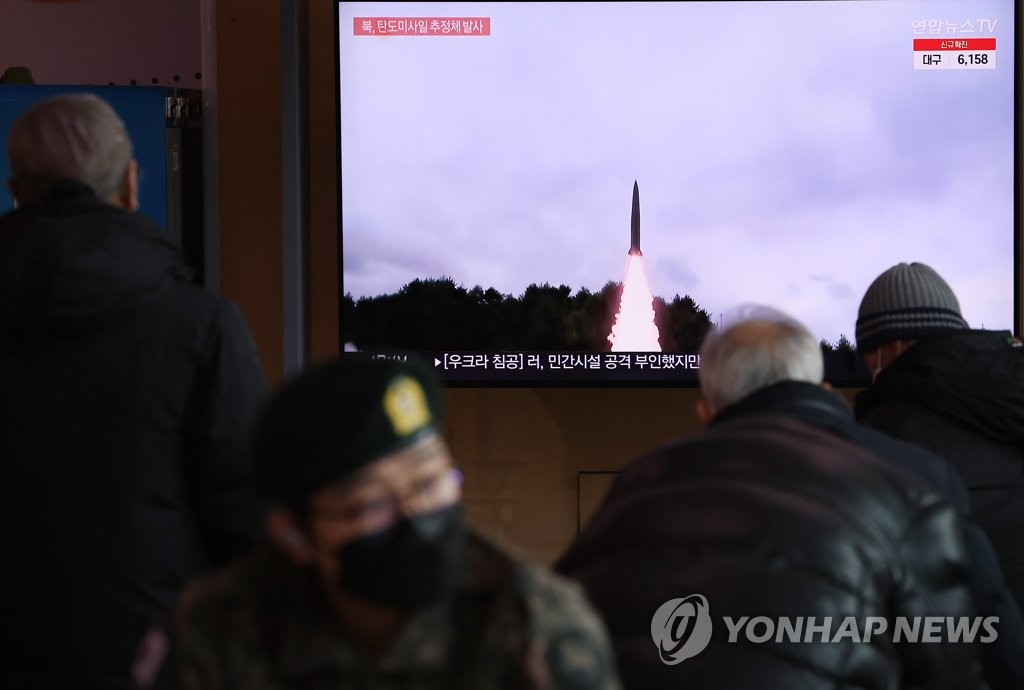- California Assembly OKs highest minimum wage in nation
- S. Korea unveils first graphic cigarette warnings
- US joins with South Korea, Japan in bid to deter North Korea
- LPGA golfer Chun In-gee finally back in action
- S. Korea won’t be top seed in final World Cup qualification round
- US men’s soccer misses 2nd straight Olympics
- US back on track in qualifying with 4-0 win over Guatemala
- High-intensity workout injuries spawn cottage industry
- CDC expands range of Zika mosquitoes into parts of Northeast
- Who knew? ‘The Walking Dead’ is helping families connect
N. Korea seems to have failed in suspected ballistic missile launch: S. Korean military
North Korea fired an apparent ballistic missile Wednesday, but the launch appears to have ended in a failure, South Korea’s military said.
The North shot the projectile from the Sunan area in Pyongyang at around 9:30 a.m., according to South Korea’s Joint Chiefs of Staff (JCS). It did not elaborate further, only saying an additional analysis is needed.
The missile appears to have exploded in midair at an altitude of below 20 kilometers, informed sources said later.

In this file photo, a news report on North Korea’s launch of a ballistic missile is aired on a television at Seoul Station on Feb. 27, 2022. (Yonhap)
“At this point, our assessment is that the projectile launch appears to have been botched as it failed to reach a certain altitude in its early boost phase,” a JCS official told reporters on condition of anonymity.
Military authorities are putting weight to the possibility the latest launch involved the same intercontinental ballistic missile (ICBM) that the North tested on Feb. 27 and March 5.
Last week, Seoul and Washington criticized the past two launches as new ICBM system tests ahead of a full-range launch, dismissing the North’s claim that they were meant to develop a “reconnaissance satellite.”
The allies presume the twin launches involved the Hwasong-17 ICBM that the North unveiled during a military parade in October 2020. Nicknamed a “monster” ICBM for its size, it is known to carry multiple warheads and have a range of longer than 13,000 km.
The U.S. Indo-Pacific Command condemned the latest launch and called on the North to refrain from further “destabilizing” actions.
“The United States will continue to take all necessary measures to ensure the security of the U.S. homeland and our allies,” the command said in a press release. “The U.S. commitment to the defense of the ROK and Japan remains ironclad.” ROK stands for South Korea’s official name, Republic of Korea.
Seoul’s foreign ministry urged the North to halt missile testing that heightens tensions in the region.
“The government will keep close cooperation with friendly countries, including the U.S., to prevent such acts by North Korea,” a ministry official said.











